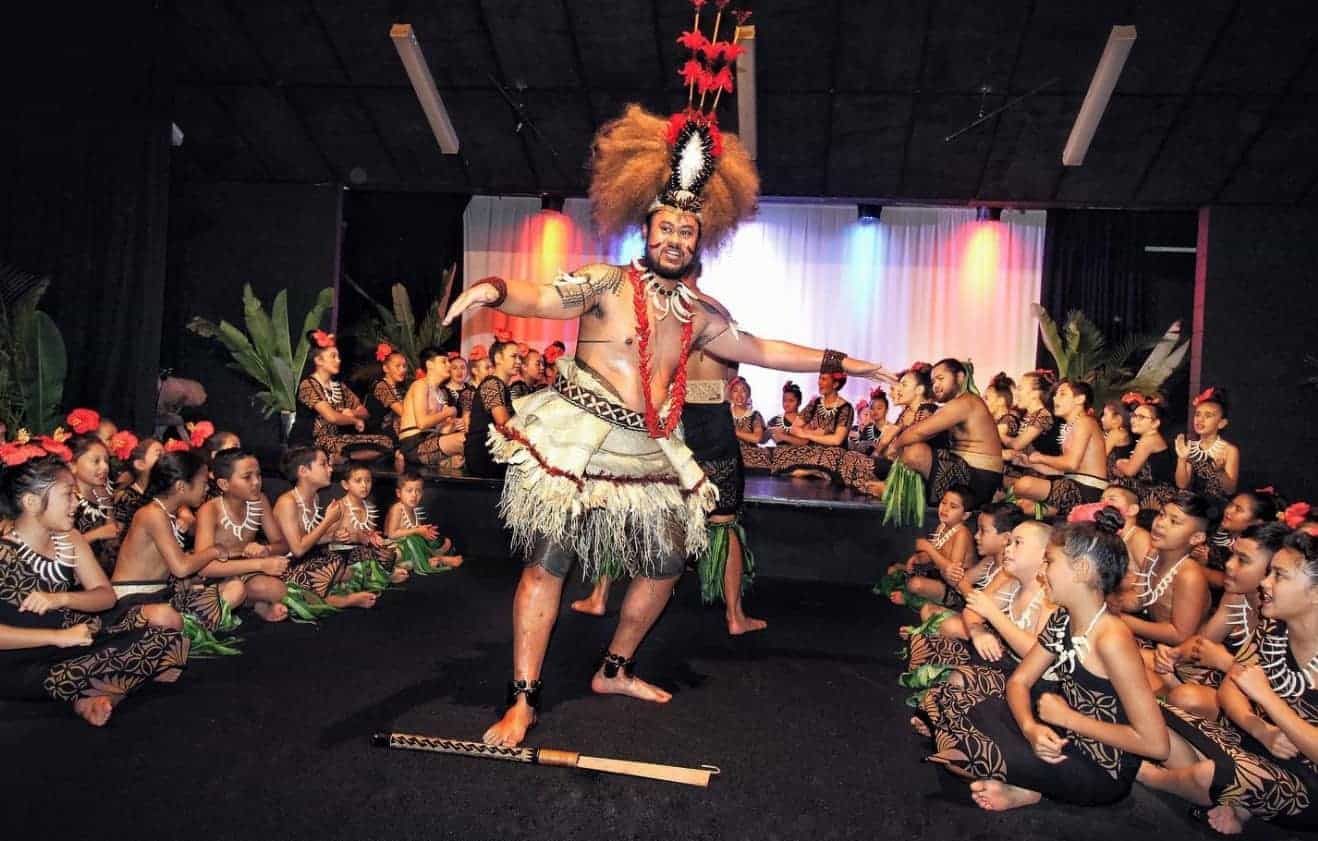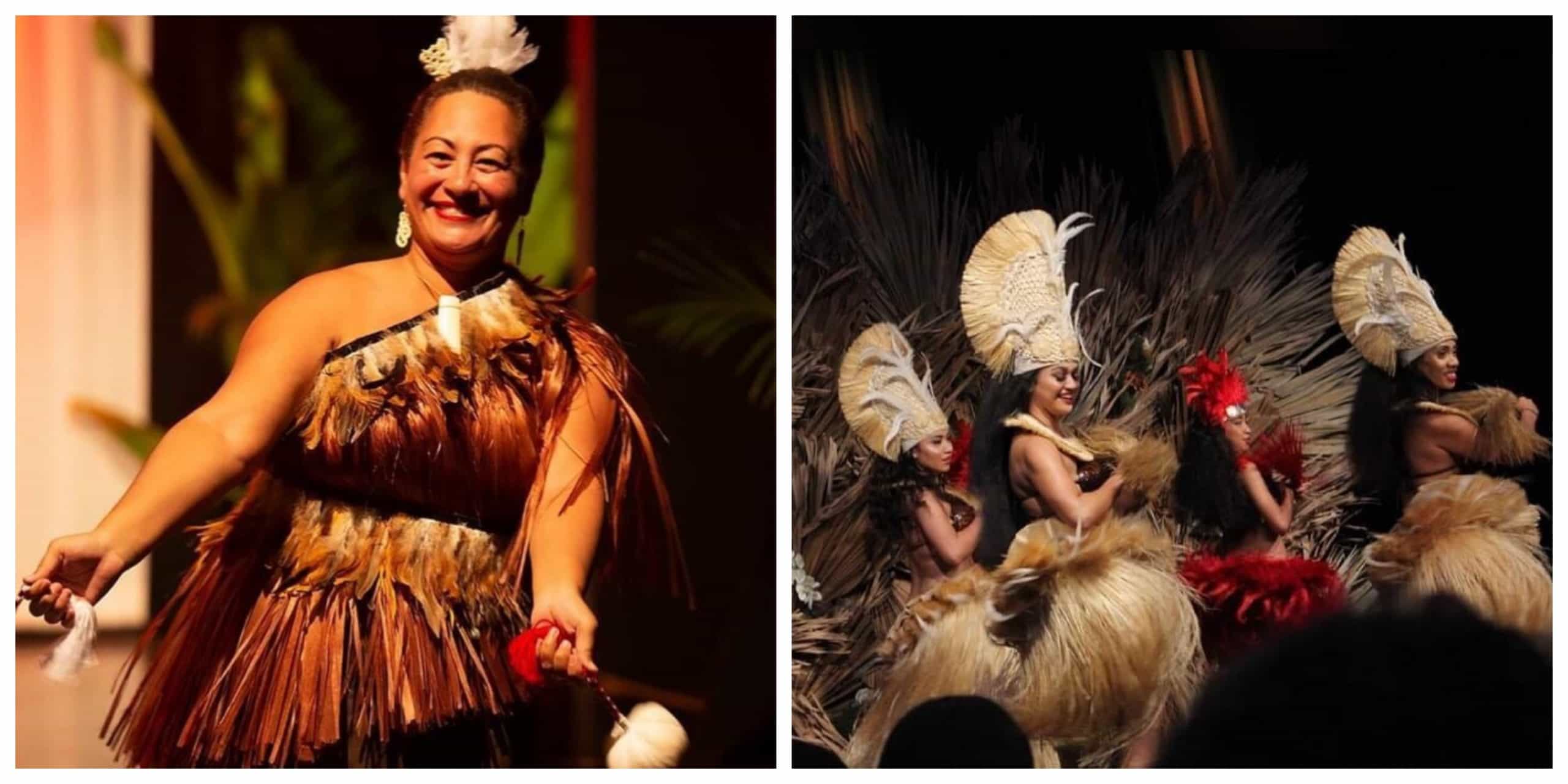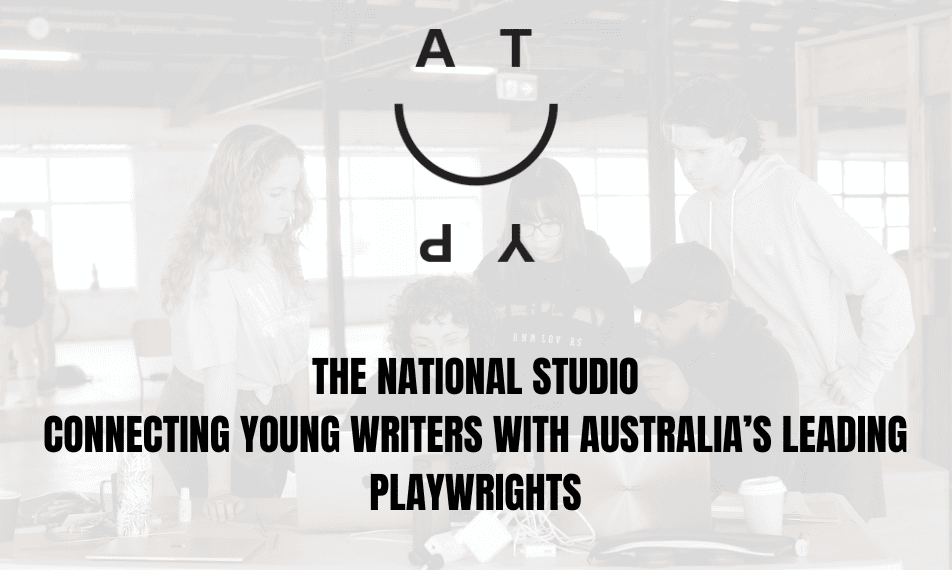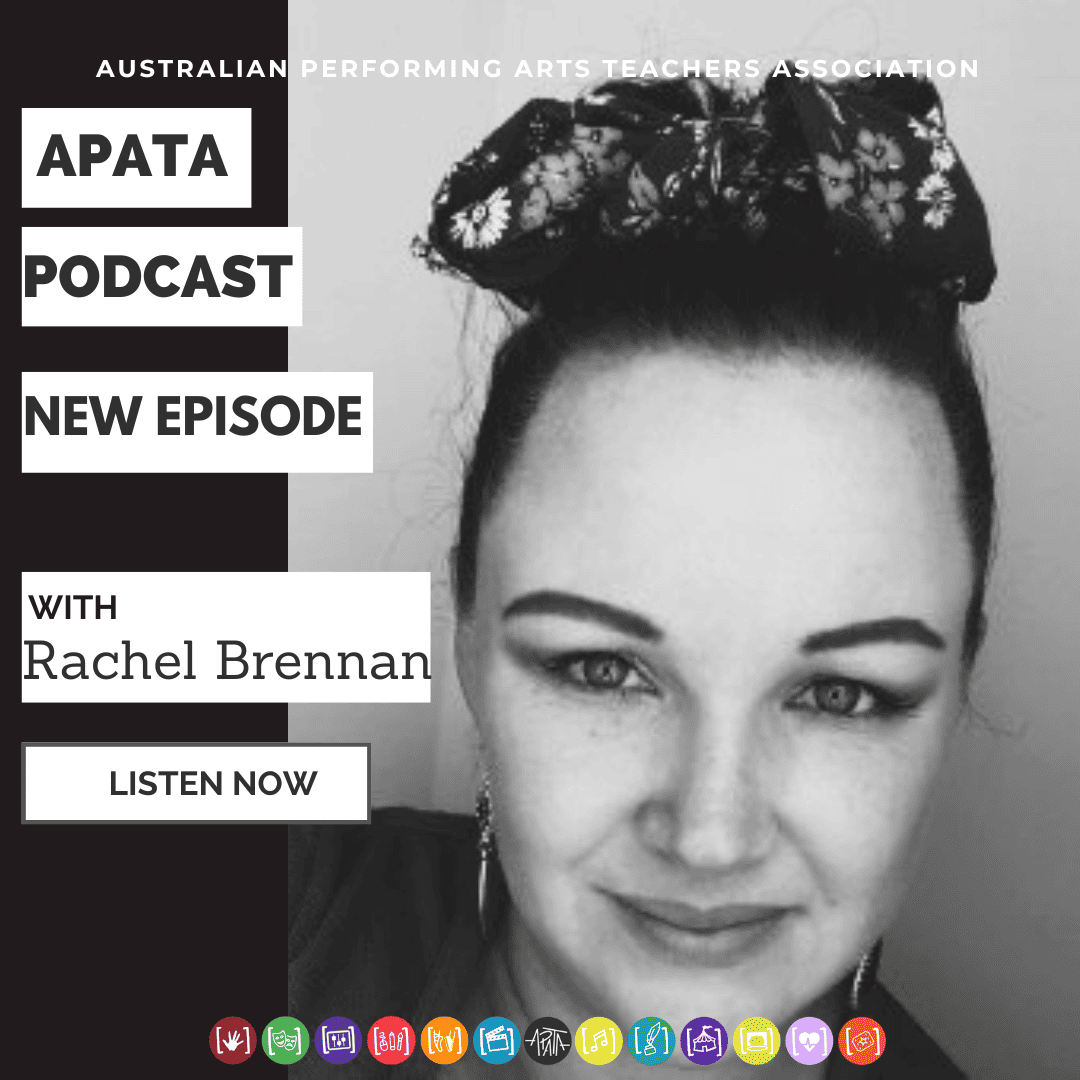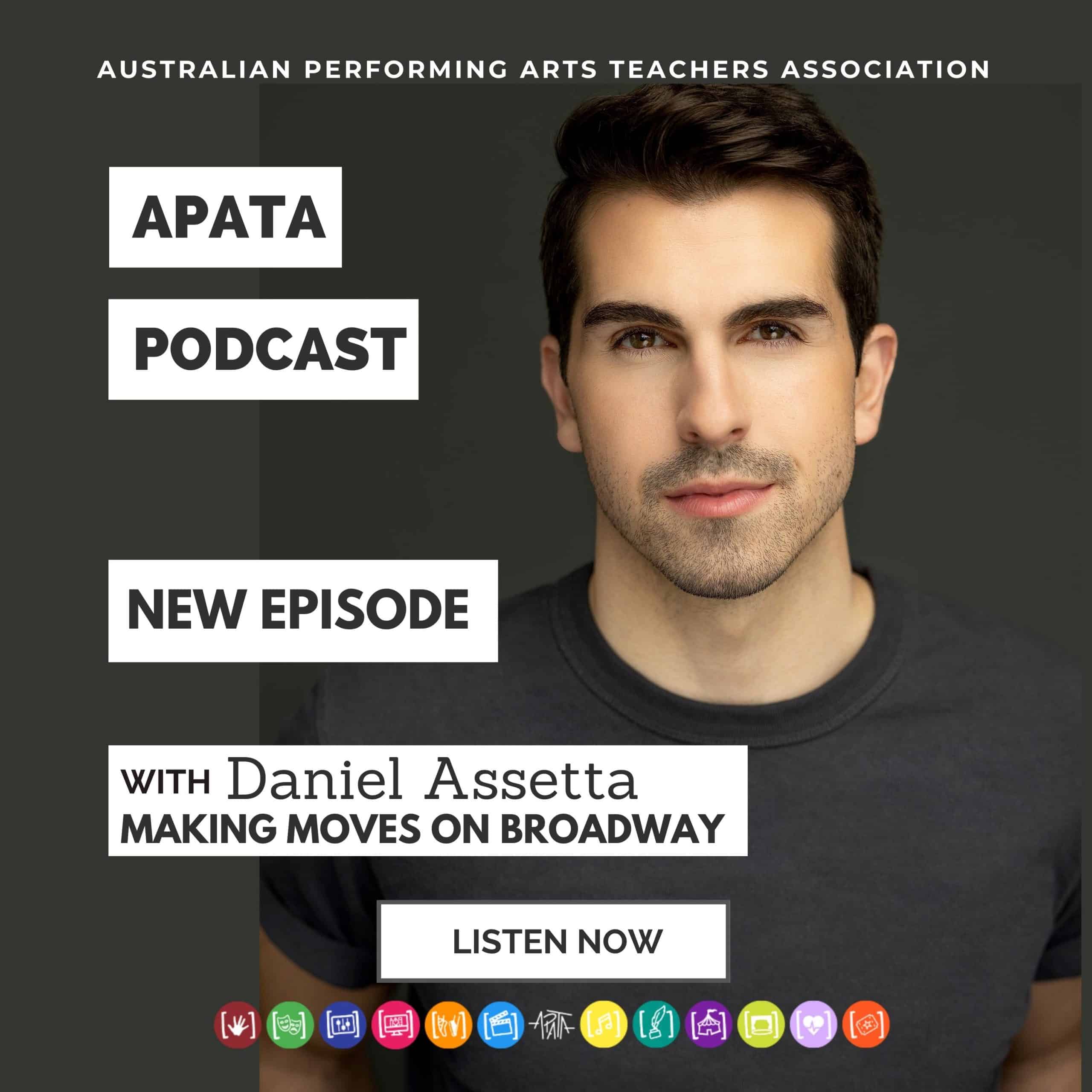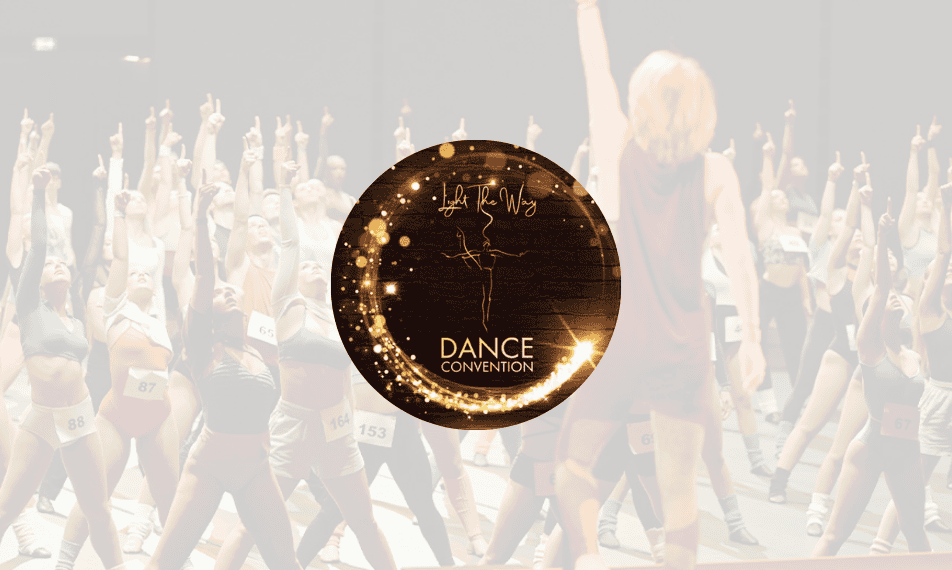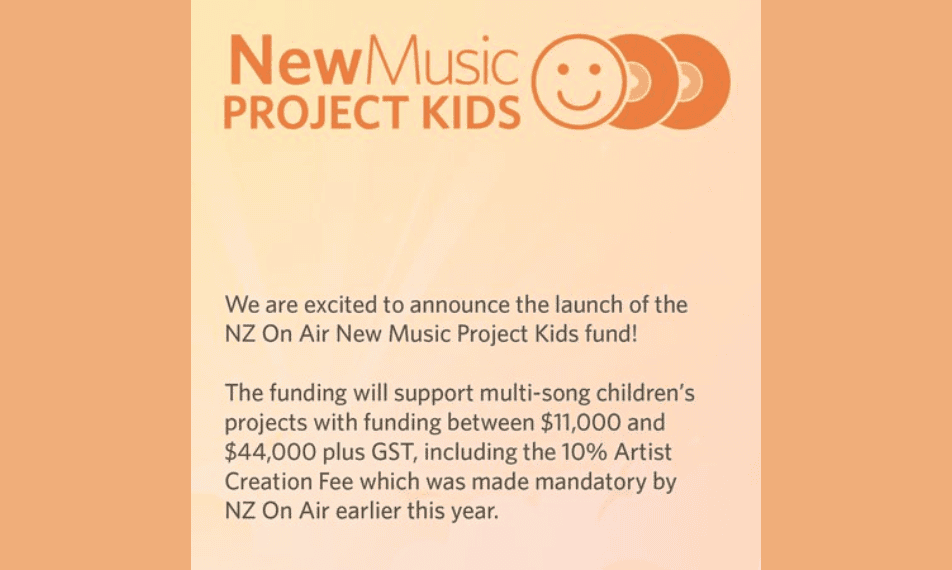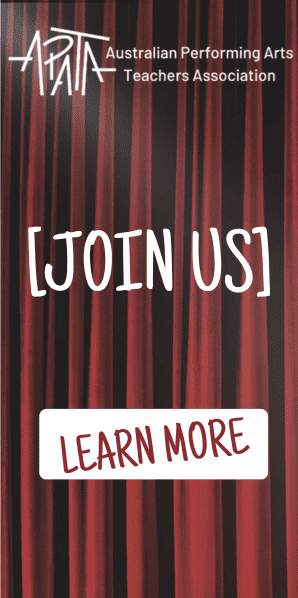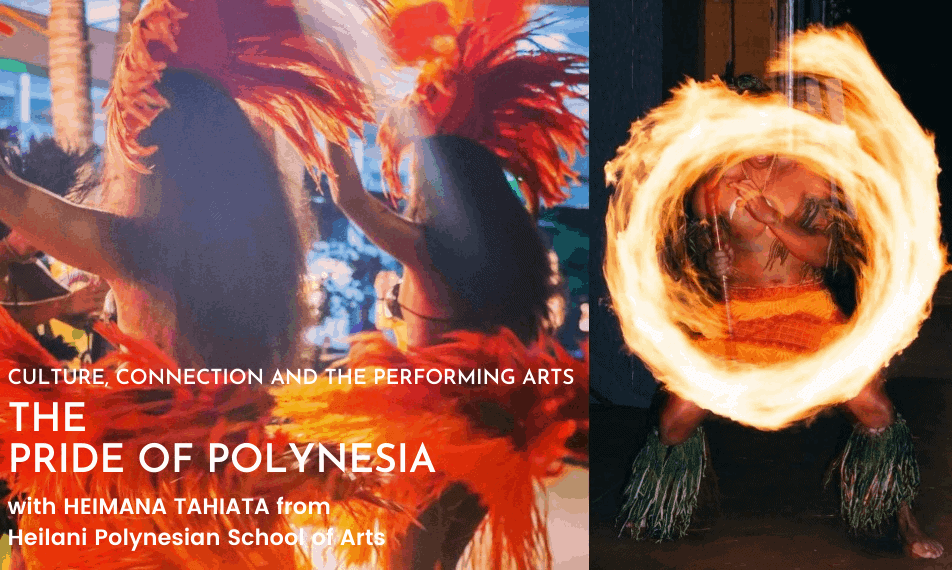
The Pride of Polynesia with Heimana Tahiata from Heilani Polynesian School of Arts
Posted by Team APATA | Sep 30, 2020
Staying local with this week’s discussion on culture, connection and the performing arts, we spoke to Heimana Tahiata, Co-Artistic Director of Heilani Polynesian School of Arts and Heilani Productions. Continuing his family legacy in the cultural performing arts and entertainment industry, Heimana and his wife and Co -Artistic Director Leilani, along with their fellow directors, Fati Tagata and Waiana Karepa-Tagata created their school to bring a piece of home to the Pasifika and New Zealand communities in Brisbane and beyond. Launching their brand new website providing online education in Pacific Dance, Fitness, Music, Arts/Crafts, Costume Making and more, I caught up with Heimana to learn more about Heilani and discuss the power of cultural connection when we make Australia our home away from home.
Where are you from Heimana and when did you come to Australia?
I was born in Hamilton, New Zealand. I am the oldest of eight siblings, five boys and three girls. My parents were performers, mum was a musician and singer with a showband called ‘The Māori Volcanics’ and they used to travel all around the world. She wound up in Hawaii at the Polynesian Cultural Centre where she met my dad who was a pro Tahitian dancer. He had been recruited from Tahiti with other artisans, dancers, musicians and singers to work in Hawaii and so their worlds collided, and I was born. My parents had several contracts performing in Japan and I was raised there for about 6-7 years. Mum got a gig in the Whitsundays and we lived in Sydney for a few years before we all moved to the Whitsundays because my parents were performing shows on most of the islands – Hamilton Island, Hayman Island, South Mole Island, Daydream Island. My school years in the Whitsundays was a cool experience and I’m grateful for that. Mum says I was pretty much born into show biz. When I was born she would have me lying in a guitar case on the side of the stage. I’m just grateful to be able to be continuing on with the legacy, preserving it and passing it on to my children.
[Heimana far right with family in the Whitsundays]
How important is it that you share Polynesian culture?
Traditionally, our histories and knowledge were passed on orally and with colonisation and other influences a lot of that knowledge was lost in the different Pacific islands. But you’ll see, and it’s been building for years now, there is a revival, a renaissance of culture and identity. Of people finding out who they are and where they come from. Not everybody gets the opportunity to return to their homeland for whatever reasons, they may have emigrated to another country and no longer have family ties. That was one of the reasons why I wanted to start something here in Brisbane. I looked at my younger siblings who didn’t have the same experiences that the older ones and I had. I wanted to share some of that with them to say, hey, Australia is a wonderful place and it has been very kind to our family, but it is not all of who we are. We have an amazing Polynesian heritage, your dad comes from here/your mum comes from here, these are the amazing cultures and experiences that they have had. I wanted my own siblings to have that experience. Our people, we need to see it, we have to taste it and we have to touch it because if we don’t it’s hard to get a sense of it.
It doesn’t make us any less because we haven’t had that immersive experience in our culture, that’s the thing about living here in Australia. A lot of Polynesian people want to know about their identity and so where do they go if you don’t have that knowledge within your family? That’s how the school started. For my own family first, then the wider community. We have a lot of mixed heritage mothers and fathers bringing their kids to us saying, we don’t know anything about our culture please teach them.
We are an introduction. Everywhere there is ballet, jazz, hip hop all the other dance genres but I didn’t really see our people. I wanted to start the school so we can see and be proud of who we are. Representation!
[Lui Mika and students – End of Semester showcase 2019 image by @oflynns]
Tell us about your own mentors and life teachers who have impacted your journey?
Mum and Dad of course, but going on from them, I didn’t realise when I was younger that having all of those different experiences, being around shows and dancers and practices, I just didn’t think of them as mentors at the time. They were just family. When we lived in the Whitsundays I only knew them as my Aunties and Uncles. Now I realise that from watching them and being around them, I learned from them. I’m really just grateful that I was surrounded by these amazing artists and people, oblivious to anything different. I thought everybody used to practise their craft daily and everybody used to get dressed up in costume and go on stage – doesn’t everybody do that?
So you wanted to share the experience you had growing up with your own family and those of the wider community here in Australia, how did you make Heilani happen?
My wife is Leilani, I am Heimana – together we are Heilani, which is also the name of our daughter. Hei means ‘crown’ or ‘to gather’ and Lani means ‘sky’ or ‘the heavens’. Heilani literally means the gathering of the heavens or passing on the knowledge. We met performing in Florida. I then went back to Tahiti and it was life changing. I learnt there that the culture is still very well preserved, and they take a great deal of pride in the performing arts and dance. Especially dance. It is commonplace there for everyone to be a dancer. I took my wife there to get her teacher’s qualification in Tahitian dance and it truly is this idyllic Polynesian world that history books talk about. They may not have much, but they have their culture, their family and their home and they are happy. Living here we grow up with the mindset of, “Oh, I have to have the house, the job, the car. I need this, I need that”, when does it stop?
There is a big population of Māori, Samoan, Tongan and Cook Islanders here in the Logan area. We engage with them a lot through educational and community work. We love to share the culture.
[Ariana Beazley – End of Semester Showcase 2019 – image @heilaniproductions] [Pacific Fashion Festival – image @suzannedang]
What do you teach at Heilani?
We have two other Directors at Heilani, our really good friends who we also met in Florida – Waiana and Fati Tagata. I came home to take care of my dad, then Leilani moved here and we got married and then Fati and Waiana moved here and we started this whole thing together.
Fati is Samoan, raised in Wellington. Waiana is Cook Island, Māori & Samoan from Porirua, New Zealand. Leilani is Samoan/American, raised in Hawaii and I am Māori/Tahitian. And we teach from our own whakapapa. We began with Hawaii, Tahiti, Samoa and New Zealand. That way when people asked, where does this knowledge come from? What village are you from? We were able back up our teachings and say- these are my family ties, this is the village and place where I am from, therefore these are the teachings we know.
We may not necessarily have a degree or certificate in teaching and that is why we created the school. It is a recognised entity here in Australia where the people can bring their children to and know that it functions like any other school.
[The Heilani Directors – Fati & Waiana Tagata and Leilani & Heimana Tahiata – image @heilaniproductions]
You were interviewed by the ABC regarding Tahiti presenting a document to UNESCO asking for Ori-Tahiti to be officially recognised, can you expand on that for us?
Yes, Tahiti is a French territory, French being the only official language as Tahitian is not recognised. In New Zealand both Maori and English are the official languages, but Tahiti has a different political stance. For example, if you say Flamenco you know it comes from Spain, Hula comes from Hawaii and the Tango comes from Argentina. We wanted the same recognition for Ori’Tahiti. With globalisation the artform of Ori’Tahiti has become so popular all around the world. There are more practitioners of Ori’Tahiti outside of Tahiti than within it. In Japan it’s a multimillion-dollar business. They have millions of dancers who dance Ori’Tahiti who don’t know where it comes from and what this document was about. Ori-Tahiti is more than a certificate and a dance, it is a people and the dance is just one part of those people. It’s like with Maori culture, you can’t know the whole of that culture from just swinging a poi. What are the narratives behind it? When should it be done? That’s one of the reasons why they pushed for it. But UNESCO is based in France and Ori’Tahiti remains unrecognised at this time. The only benefit is that overseas practitioners are now going back to Tahiti for reconnection with its origins. I think of it like Kapa Haka. A Maori culture group overseas is a just a taste of the Kapa Haka at Te Matatini. Away from your culture, you don’t have the essence, the stories, the elders, but once you are immersed in it, a light is switched on and you’re like, “Hey, I get it!” We are about creating those moments here in Australia, introducing our children to the different parts of their cultures. That is the way we have to move. Using modern technologies to preserve our stories and cultures through film, television and all those modern mediums and that is why the performing arts is the best. [Stay tuned because Heilani launch their new website very soon] We are working on content, it’s a big job, and it’s a whole new way of delivering.
Besides teaching you have a professional entertainment company as well.
Yes, so the business is Heilani Productions and the school is a part of that, Heilani Polynesian School of Arts. We have had a lot of opportunities present themselves and I believe a lot of that may have to do with my wife’s administration background. You can’t just be an artist. You need to be both. Often with cultural groups, they may have the performance side of things down, but they may not have the administration side sorted. At the end of the day you have to think of your art as a business. Some artists are so artsy that no one knows who they are or they’re too creative to think of their art in business terms and therefore lose work.
If people know that you do a quality professional job they don’t mind paying what you are worth. They will value your time. At the end of the day we are a service – balancing culture, business and authenticity feels to some like selling out.
I look to the Te Arawa people of Rotorua in New Zealand. Te Arawa are world renowned and have lifted the standard of performance for Kapa Haka across New Zealand. Without Te Arawa the likes of Kapa Haka you see at Te Matatini wouldn’t exist. Of course they have their songs for the shows, but they also have the songs for their people. It’s like in Hawaii, there is Hula for the tourists and Hula for their people. There is room for everybody.
[Heilani connecting with @artback_nt – image @heilaniproductions]
What is your big dream for Heilani Polynesian School of Arts?
My big dream is an online global educational system with other practitioners – delivering maybe a four-year degree in Performing Arts, where you then spend time in the countries you need to, learning the proper techniques. I want our artforms to be recognised as mainstream, even without a degree. Out tupuna didn’t have those things, but the knowledge they passed on means something. We have our own expressions and our own beauty and that deserves to be celebrated with other artforms.
That is what I want arts people to know. For us, what we do is more than just an artform. It goes so much deeper because you’re talking about a people and a culture not just a dance. People can learn a modern dance and have no connect. With our people and with our artforms there is a connection because that art is actually a part of who we are and that is just as important as the artform and that’s the difference and what makes us different from others!
Heilani Website: www.heilani.com
Heilani Facebook: @heilaniproductions
Heilani Instagram: @heilaniproductions



